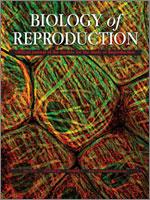The perinatal nutritional environment can permanently influence body weight, potentially leading to changes in puberty onset and reproductive function. We hypothesized that perinatal under- or overfeeding would alter puberty onset and influence concentrations of a neuropeptide crucial for successful puberty, kisspeptin. We manipulated Wistar rat litter sizes to derive small (SL), control (CL), and large (LL) litters containing 4, 12, and 20 rat pups respectively. This manipulation results in an overweight phenotype in SL rats and a lean phenotype in LL that persists throughout life. To investigate whether successful puberty onset is affected by neonatal under- or overfeeding, we examined indices of growth and development, including the onset of puberty, as well as the central expression of Kiss1 mRNA in these pups. Male LL rats reached puberty later than those from CL. These males also had reduced plasma testosterone and elevated 17beta-estradiol concentrations at puberty. The age at puberty onset was not affected in SL males despite accelerated growth. In females, puberty onset was not significantly delayed by having a lean phenotype, and steroid hormones were not affected. The age at onset was, however, younger in the SL females. Kiss1 mRNA in the hypothalamus was not affected by neonatal nutrition either at puberty or 7 days later. Our findings show early life underfeeding in males and overfeeding in females significantly affects puberty onset, altering steroid hormone concentrations in males, but this is not related to changes in hypothalamic kisspeptin.
How to translate text using browser tools
29 February 2012
Preweaning Over- and Underfeeding Alters Onset of Puberty in the Rat Without Affecting Kisspeptin
Jeremy T. Smith,
Sarah J. Spencer
ACCESS THE FULL ARTICLE

Biology of Reproduction
Vol. 86 • No. 5
May 2012
Vol. 86 • No. 5
May 2012
development
kisspeptin
nutrition
puberty




